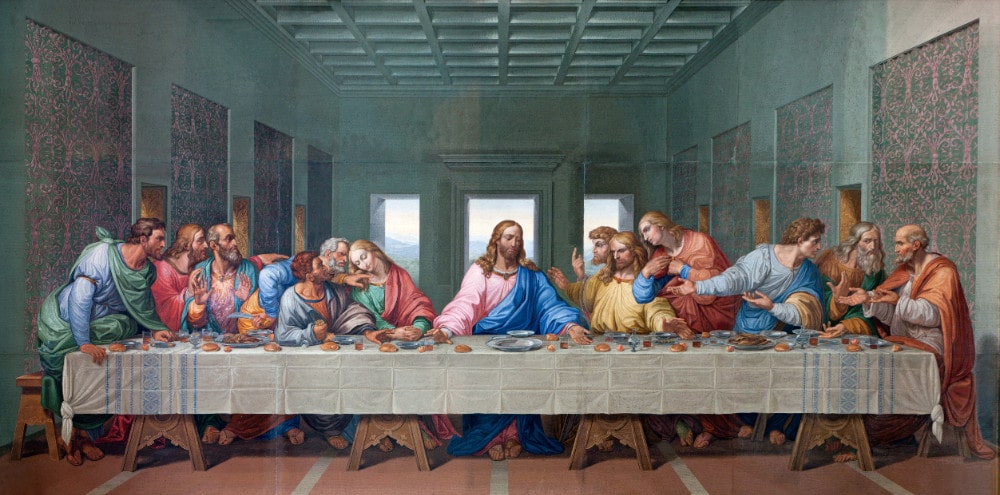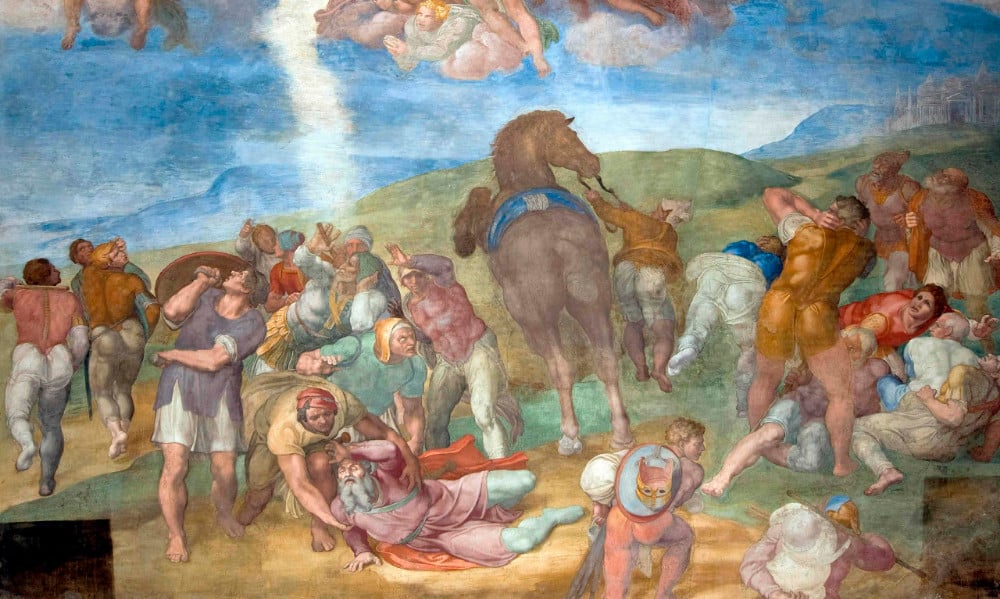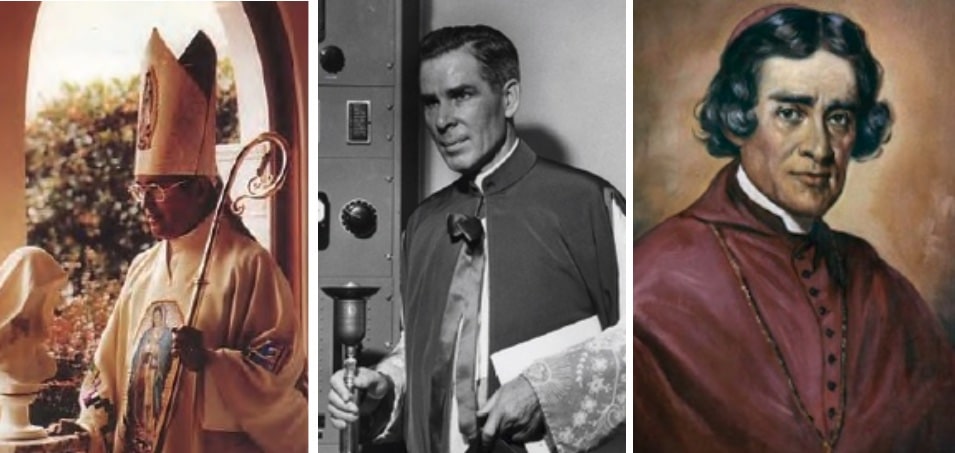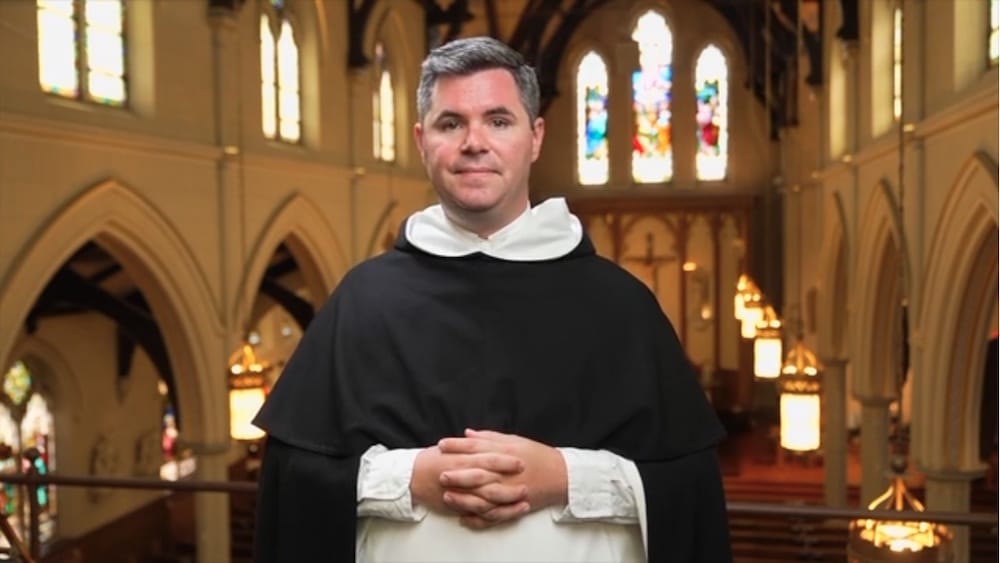I am often struck by the physicality of God. Perhaps that is because, for so much of my life, I thought my relationship with God was something purely spiritual. Jesus was like Obi-Wan Kenobi. Yes, he once had a body, but now he is present only in spirit, guiding me from the beyond. Yoda taught Luke, “Luminous beings are we, not this crude matter.” The message was that our “crude” bodies were temporary, but our “luminous” spirits — who we really are — live on for eternity.
Only half right, Yoda was.
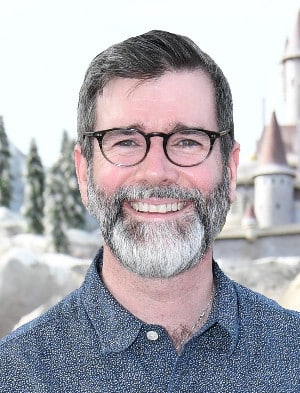
St. John Paul II taught that we are embodied souls. We are not a soul within a body. We are souls that are embodied. Our spirit and flesh were created together and were made to remain together forever. Though there may be a temporary separation of body and soul if we die before Jesus comes again, we profess every Sunday that we “look forward to the resurrection of the dead,” a time when our spirit will be reunited with our flesh, living in the new heaven and new earth for all eternity with God.
Two thousand years ago, the second person of the Trinity became an embodied soul. Jesus is fully God and fully man, like us in all things but sin. He didn’t just wear flesh, he “became flesh.” Jesus’ sacrifice on the cross saved us in both flesh and spirit. The infinite mercy he wanted to pour out on all humanity cost him dearly, down to his last breath and last drop of blood. When he rose from the dead, it wasn’t just in spirit, but in both body and soul. When he ascended into heaven, he didn’t take off his flesh like a suit that hangs in the closet. He is still flesh and spirit and will be forever. The Christ that comes again will have the same flesh, now glorified, that was created in Mary’s womb at the Incarnation.
Jesus is an embodied soul. So, wouldn’t it make sense that he would come to us as he truly is? One who, like us, is both physical and spiritual? This is what he does for us in the sacraments.
Read more Fall Vocations articles here.
The Catechism describes the sacraments as “‘powers that comes forth’ from the Body of Christ, which is ever-living and life-giving” (No. 1116). The same things that Jesus did two thousand years ago he does today in the sacraments. One need not feel at a loss because they didn’t happen to be alive when Jesus did his public ministry. He is as present now as he was then — even more so! When he walked the earth, Jesus never made it to Wintersville, Ohio. But now, every day at my parish, he is made physically present there through the celebration of the sacraments, most especially the Eucharist.
The Eucharist is the body, blood, soul and divinity of Jesus Christ. One cannot separate the “body and blood” from the “soul and divinity.” Just as the fruit that Adam and Eve ate brought about humanity’s damnation, so now this flesh we consume brings about our salvation. As he did at the Incarnation, Jesus comes to us physically.
As a deacon, I have the best seat in the house for that moment at every liturgy. I am amazed I get to be so physically close to God. I am humbled to hold Jesus in my hands and offer him to my brothers and sisters, with the simple but profound words, “the body of Christ.” And as I purify the vessels, I am cognizant that it is not merely a matter of function (cleaning up for the next service) but an act of faith, making sure no piece of flesh or drop of blood remains outside the two places where they belong: the tabernacle and our embodied souls.
St. Irenaeus wrote, “Our way of thinking is attuned to the Eucharist, and the Eucharist in turn confirms our way of thinking.” One important aspect of Eucharistic thinking is to reflect on the physicality of God made present to us in the sacraments. Our relationship with God is not merely in our intellect or imagination. We feel his blessing when the holy water touches our head. We hear his mercy through the words of absolution. And we can see and taste his love for us in the most blessed sacrament, the Eucharist.
Deacon Bob Rice, Ph.D., serves in the Diocese of Steubenville, Ohio, and is a professor of catechetics at Franciscan University of Steubenville.

